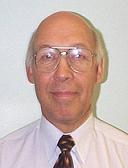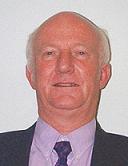| ||||||||||||||
|
Plenary Lecture
Brief Biography of the Speakers: Roy Perryman: graduated with a BSc(Hons) in Electrical Engineering in 1969 and gained a PhD in Magnetic Materials in 1974. He spent 17 years in the electrical and electronics industry working with AFA Minerva (EMI) Ltd, Bowthorpe Controls, and Walter Jones & Co Ltd. In 1988 he joined the University of Greenwich and became Associate Head of the School of Engineering. He was subsequently appointed as Head of the School of Electrical & Manufacturing Engineering at the University of East London in 1996 and became Ford Professor in Engineering Education in 2004. He is a Chartered Engineer and Fellow of the Institution of Engineering and Technology (FIET). His research interests are in the design and control of electrical machines and drive systems, magnetic materials, condition monitoring and the application of neural networks. Stephen Dodds: received a BSc (Hons) in Electrical Engineering in 1967, an MSc in Systems Engineering in 1970 and a PhD in the Control of Flexible Spacecraft in 1985. He spent 13 years as an attitude and orbit control systems engineer on European space programmes and originated new digitally implemented spacecraft attitude control. In 1985 he was appointed Reader in Control Engineering at the University of East London (UEL) and subsequently expanded his control systems research to encompass electrical drives. In 1997 he was made an Academician of the Academy of Non-linear Sciences of Russia and became Professor of Control Engineering at UEL. His general research interests encompass robust control techniques and feedback linearisation, which has resulted in the recent innovations in drive control systems falling under the general heading of 'forced dynamic control'.
|
| |||||||||||||
| | | | ||||||||||||
| copyright - designed by WSEAS | ||||||||||||||

